COVID-19: TRC coronavirus guide for members

Athletes are often more prone to viruses due to a high red blood cell count relative to the white blood cells that fight off bugs. To some extent this is offset by an increased level of fitness and general wellbeing. Nevertheless, even very fit people can be carriers for viral diseases and we should be aware that we can infect others even though we show no symptoms.
Coronavirus - Know How it Spreads
- There is currently no vaccine to prevent coronavirus disease 2019 (COVID-19).
- The best way to prevent illness is to avoid being exposed to this virus.
- The virus is thought to spread mainly from person-to-person or by touching recently infected surfaces.
- Between people who are in close contact with one another (within about 6 feet).
- Through body fluid or respiratory droplets produced when an infected person talks, laughs, coughs or sneezes.
- These droplets can land on surfaces, clothing, in the mouths or noses of people who are nearby or possibly be inhaled directly into the lungs.
Take steps to protect yourself
- Wear a mask - this is more to protect others but is also a message to those who flout their social responsibilities that the VIRUS is still at large.
- Clean / Wash your hands often with soap and water for at least 20 seconds especially after you have been in a public place, or after blowing your nose, coughing, or sneezing.
- If soap and water are not readily available, use a hand sanitiser that contains at least 60% alcohol. Cover all surfaces of your hands and rub them together until they feel dry.
- Avoid touching your eyes, nose, and mouth with unwashed hands.
- Avoid close contact with anyone, particularly people who are sick
- Put distance between yourself and other people if COVID-19 is spreading in your community. This is especially important for people who are at higher risk of getting very sick.
Take steps to protect others
- Remember, you could be a carrier without knowing
- Do not hug, kiss or shake hands with others
- Be spatially aware - keep 2 metres between yourself and others
- Do not visit clubs, pubs or restaurants or anywhere that people gather.
- Stay home if you are sick, except to get medical care.
- Cover coughs and sneezes
- Cover your mouth and nose with a tissue when you cough or sneeze or use the inside of your elbow.
- Throw used tissues in the rubbish.
- Immediately wash your hands with soap and water for at least 20 seconds. If soap and water are not readily available, clean your hands with a hand sanitiser that contains at least 60% alcohol.
- If you are sick: You should wear a face-mask when you are around other people (e.g., sharing a room or vehicle) and before you enter a healthcare provider’s office. If you are not able to wear a face-mask (for example, because it causes trouble breathing), then you should do your best to cover your coughs and sneezes, and people who are caring for you should wear a face-mask if they enter your room.
- If you are NOT sick: You do not need to wear a facemask unless you are caring for someone who is sick (and they are not able to wear a face-mask). Face-masks may be in short supply and they should be saved for caregivers.
Clean and Disinfect
- Clean AND disinfect frequently touched surfaces daily. This includes tables, doorknobs, light switches, countertops, handles, desks, phones, keyboards, toilets, faucets, and sinks.
If surfaces are dirty, clean them: Use detergent or soap and water prior to disinfection.
- Most common household disinfectants will work. Use disinfectants appropriate for the surface.
- Using household bleach - effective against coronaviruses when properly diluted
• To make a bleach solution, mix:
• 1 tablespoon bleach per litre of water


